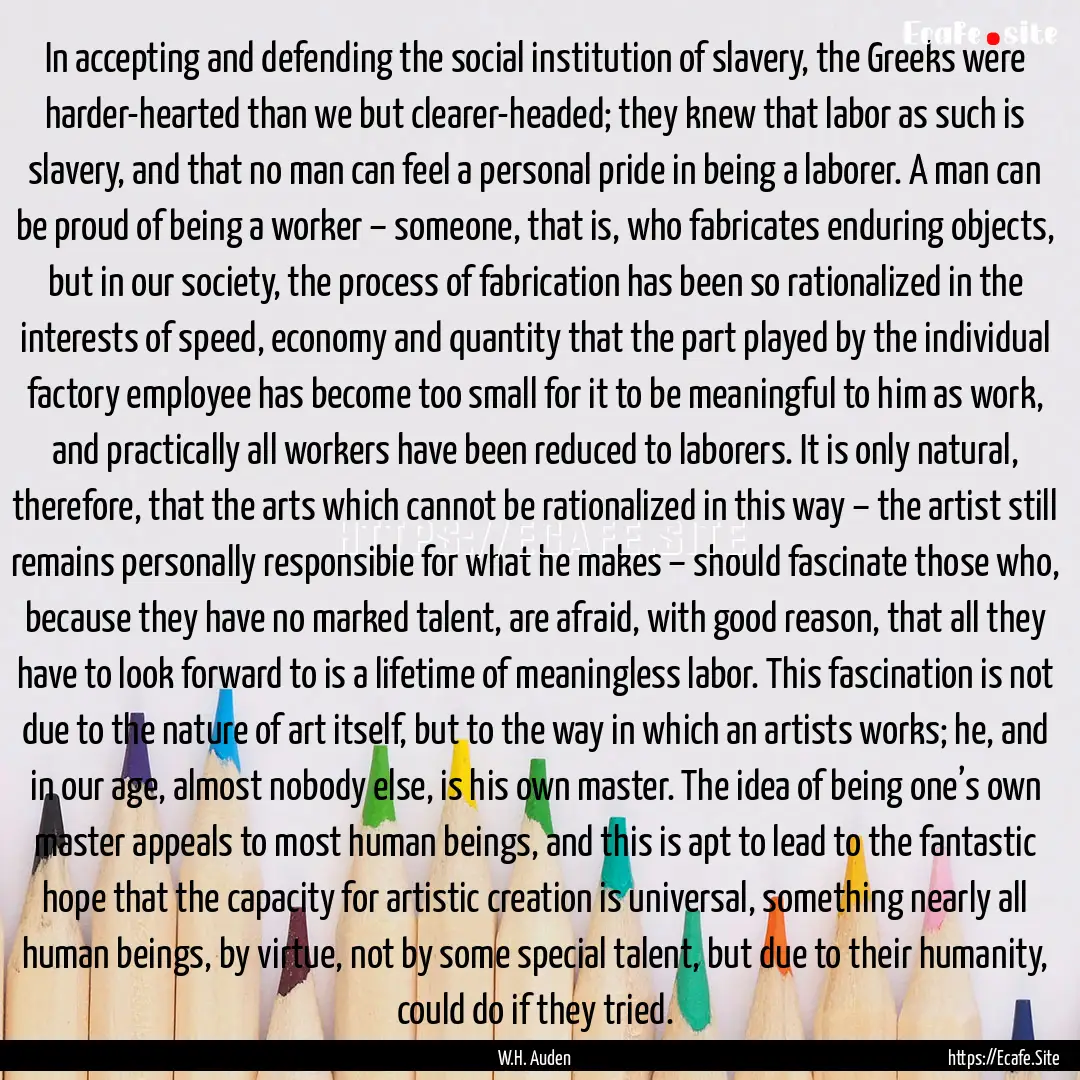
Report, if you have a problem with this page“ In accepting and defending the social institution of slavery, the Greeks were harder-hearted than we but clearer-headed; they knew that labor as such is slavery, and that no man can feel a personal pride in being a laborer. A man can be proud of being a worker – someone, that is, who fabricates enduring objects, but in our society, the process of fabrication has been so rationalized in the interests of speed, economy and quantity that the part played by the individual factory employee has become too small for it to be meaningful to him as work, and practically all workers have been reduced to laborers. It is only natural, therefore, that the arts which cannot be rationalized in this way – the artist still remains personally responsible for what he makes – should fascinate those who, because they have no marked talent, are afraid, with good reason, that all they have to look forward to is a lifetime of meaningless labor. This fascination is not due to the nature of art itself, but to the way in which an artists works; he, and in our age, almost nobody else, is his own master. The idea of being one’s own master appeals to most human beings, and this is apt to lead to the fantastic hope that the capacity for artistic creation is universal, something nearly all human beings, by virtue, not by some special talent, but due to their humanity, could do if they tried. ”

W.H. Auden
From : The Dyer's Hand



